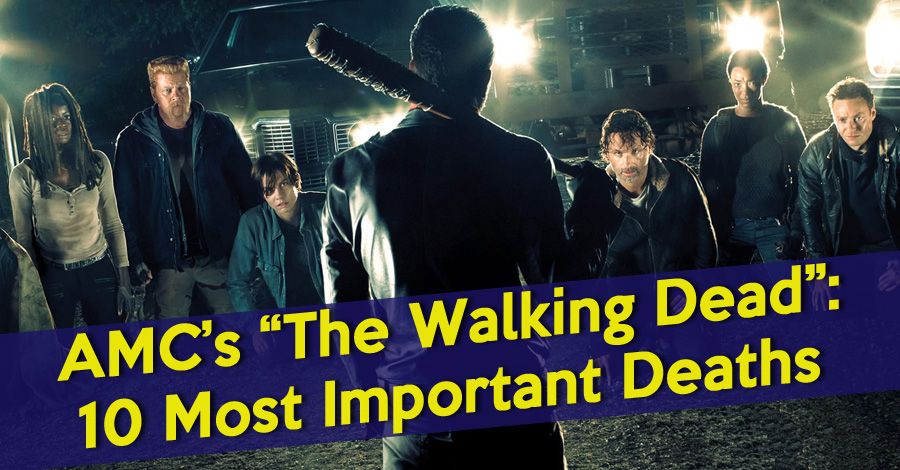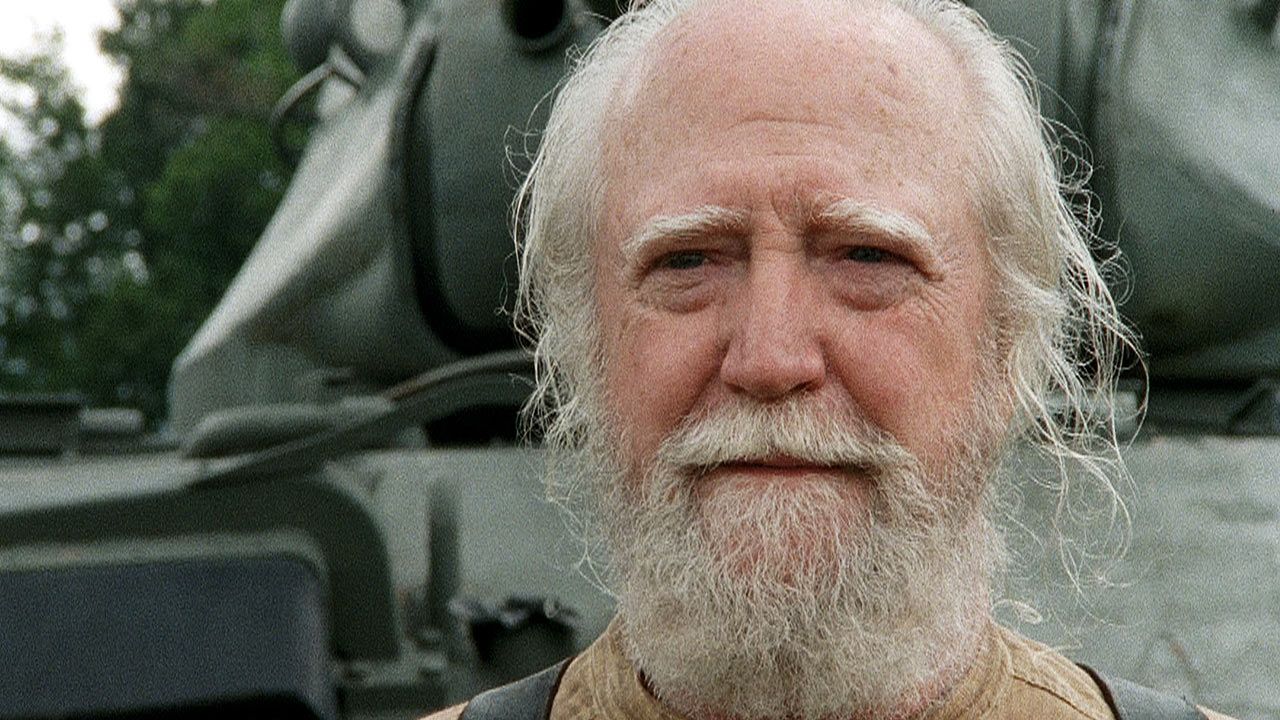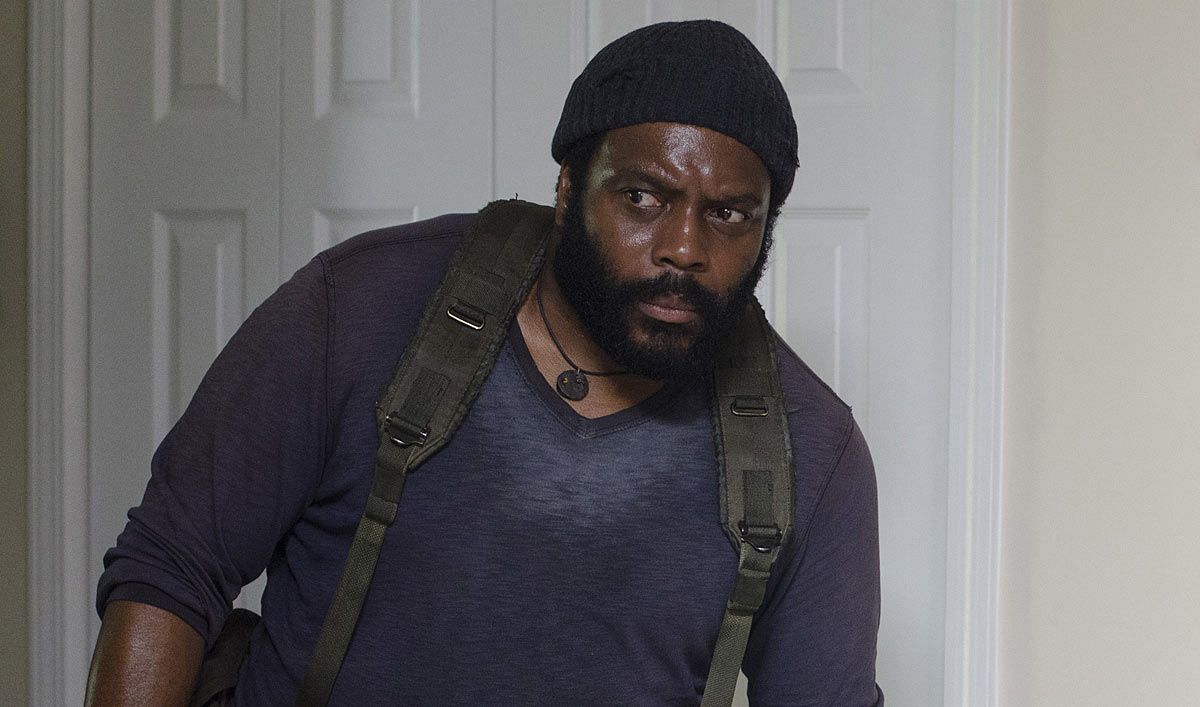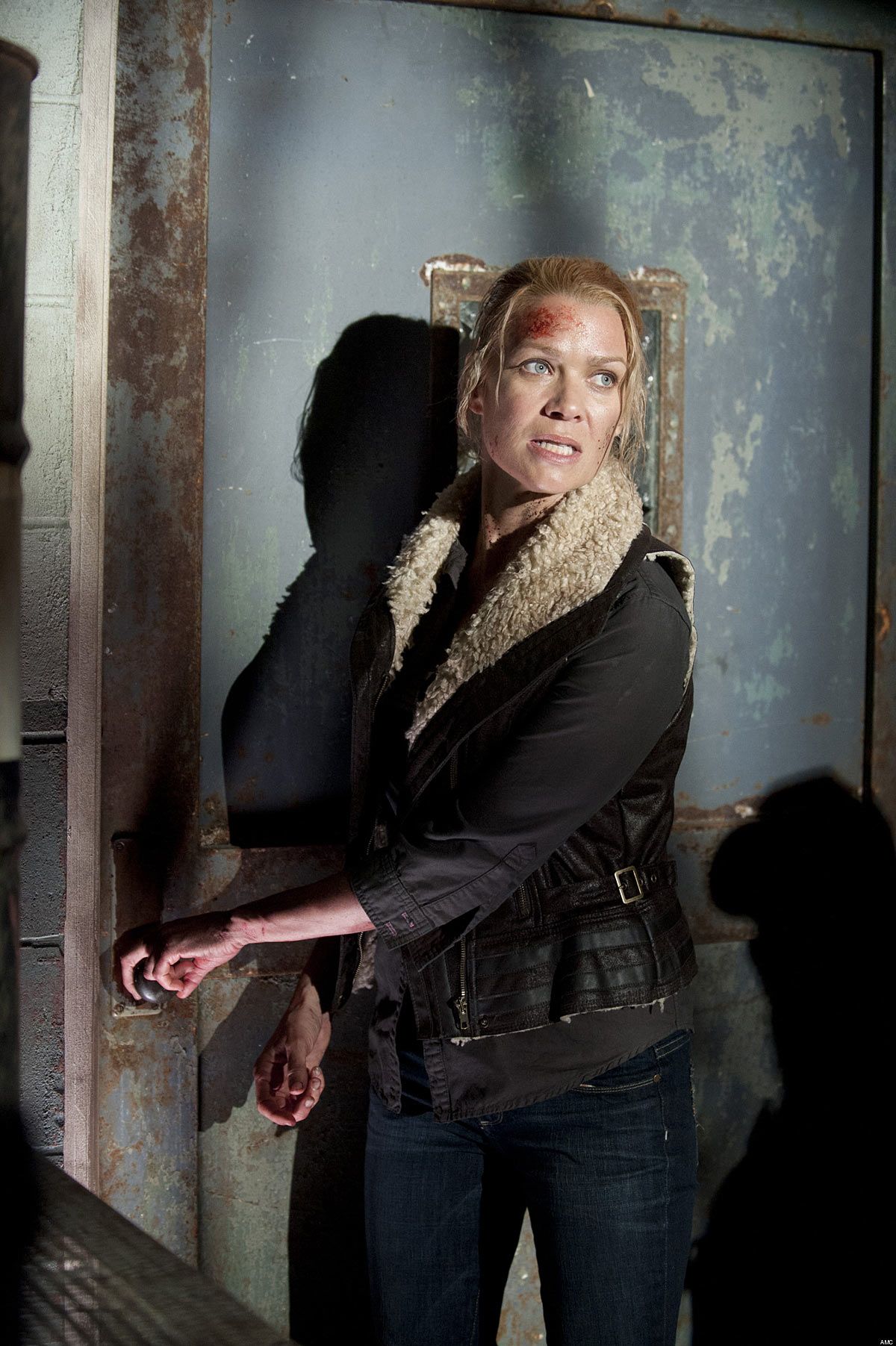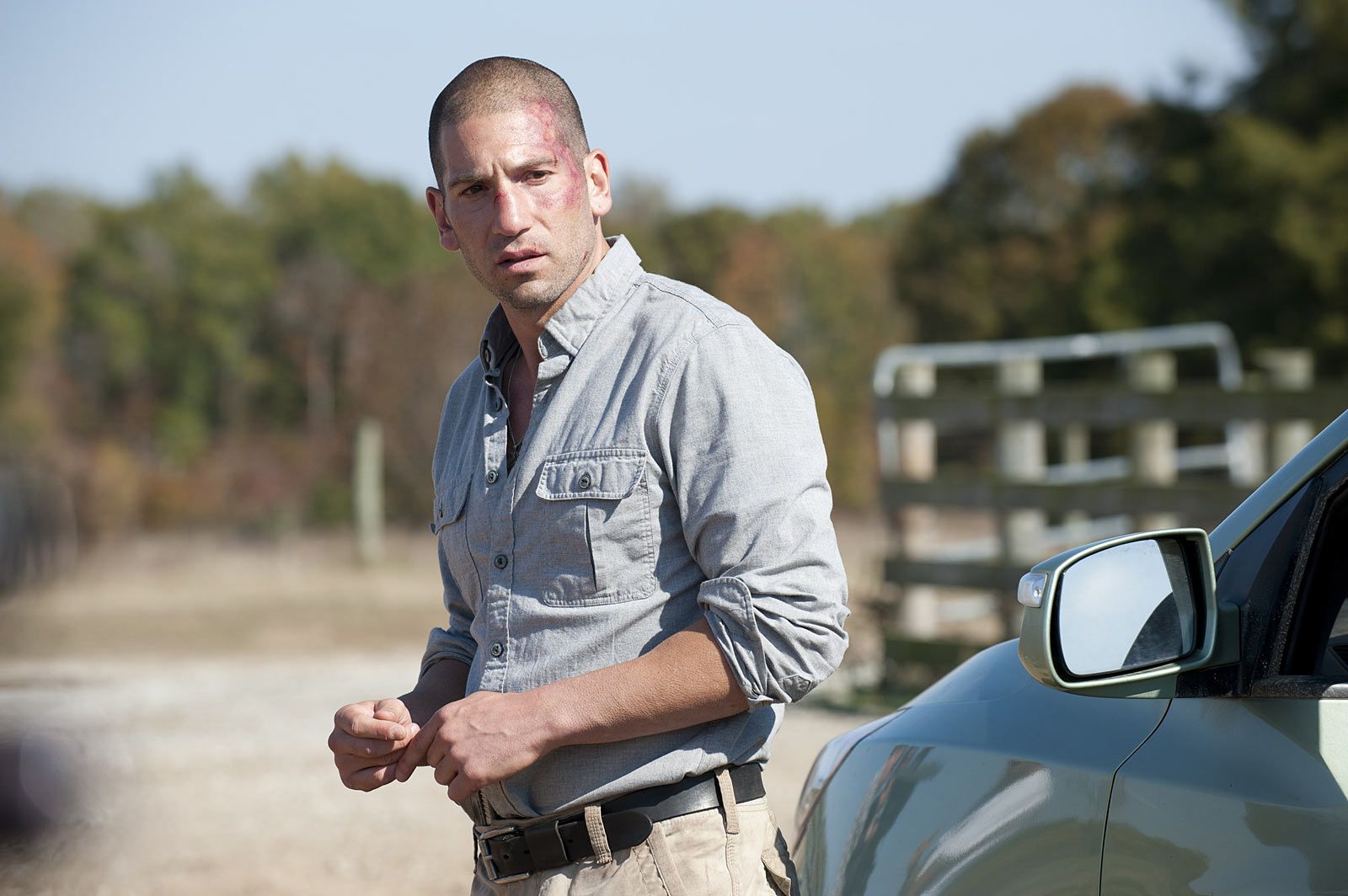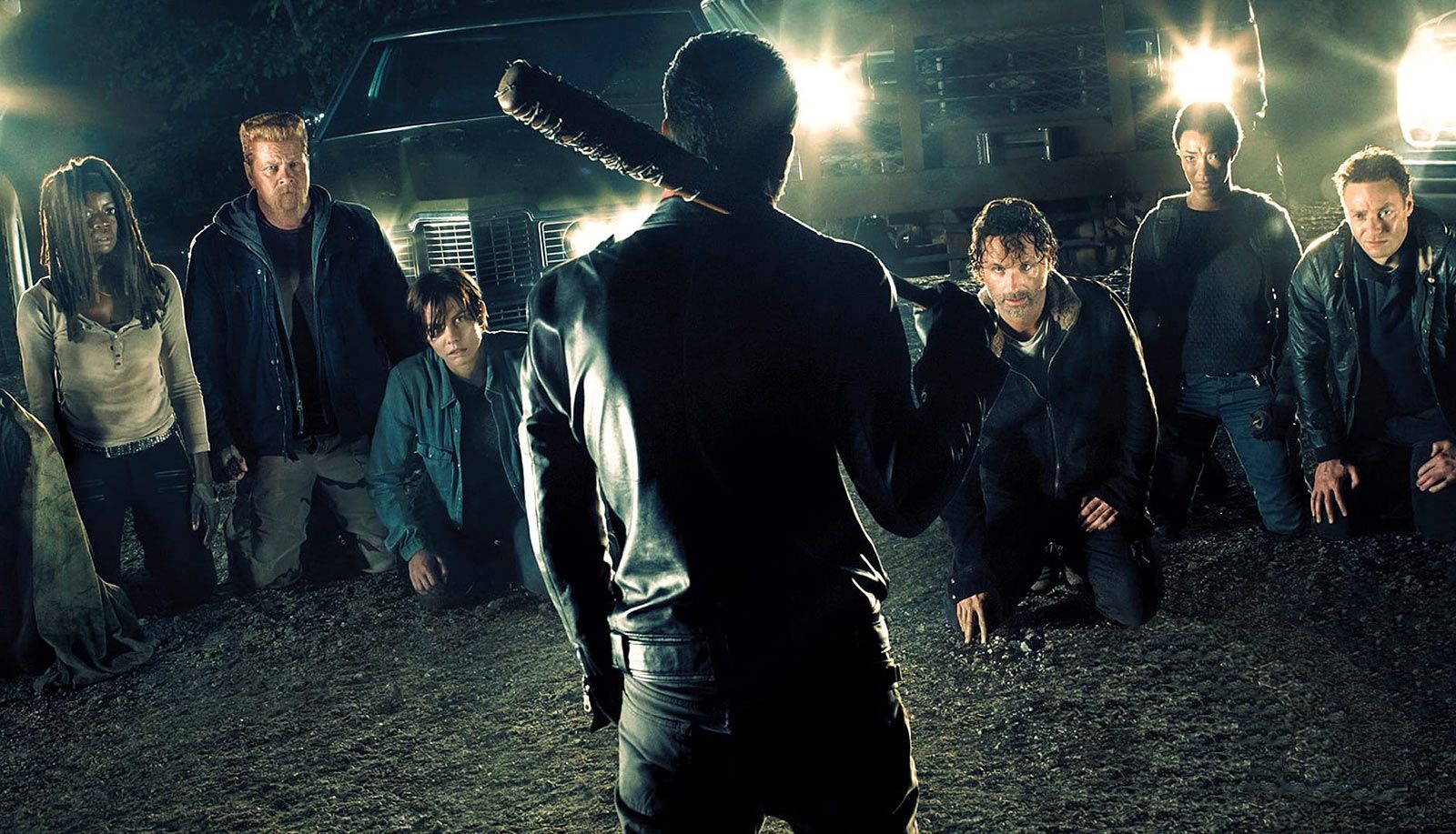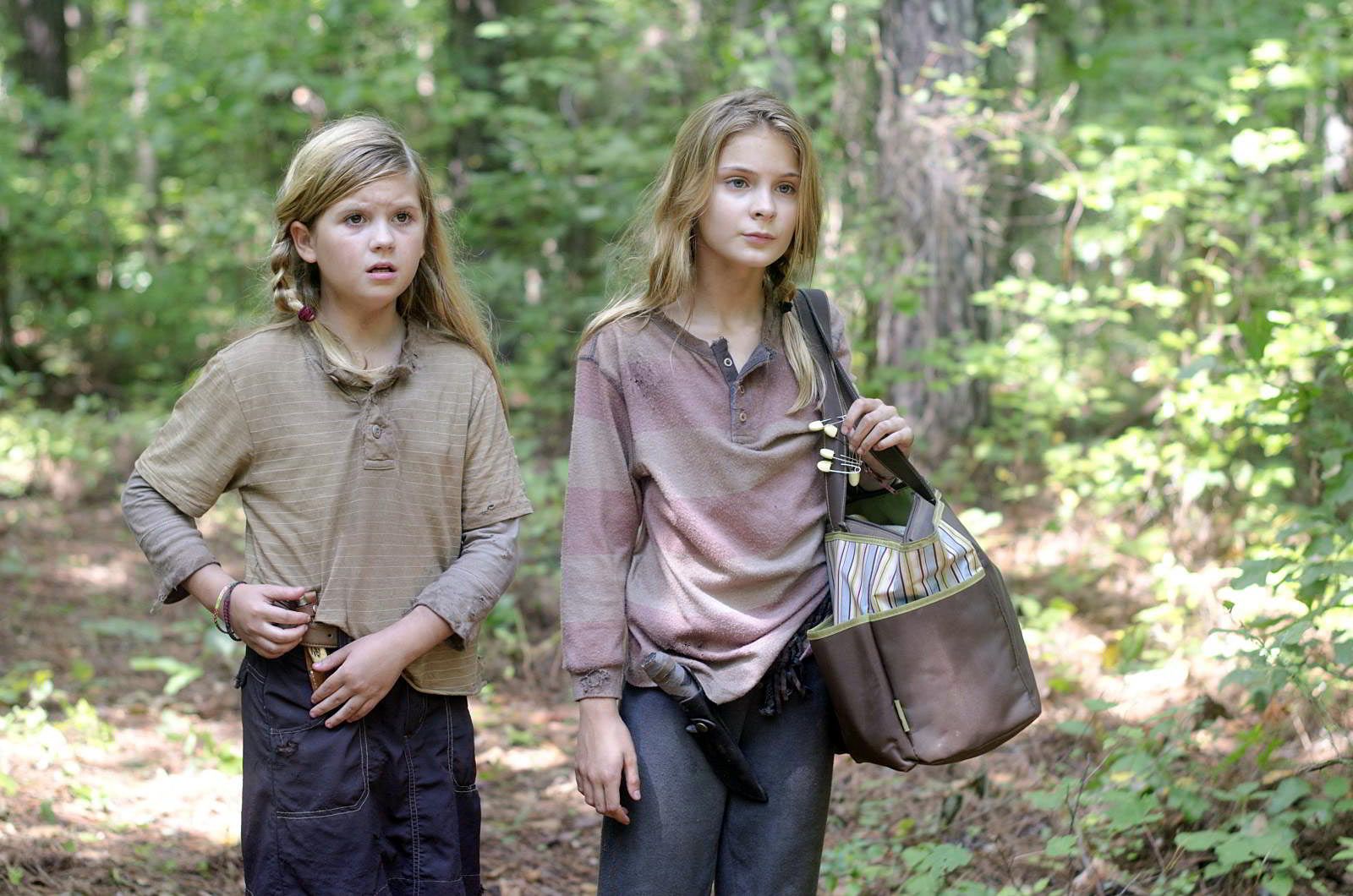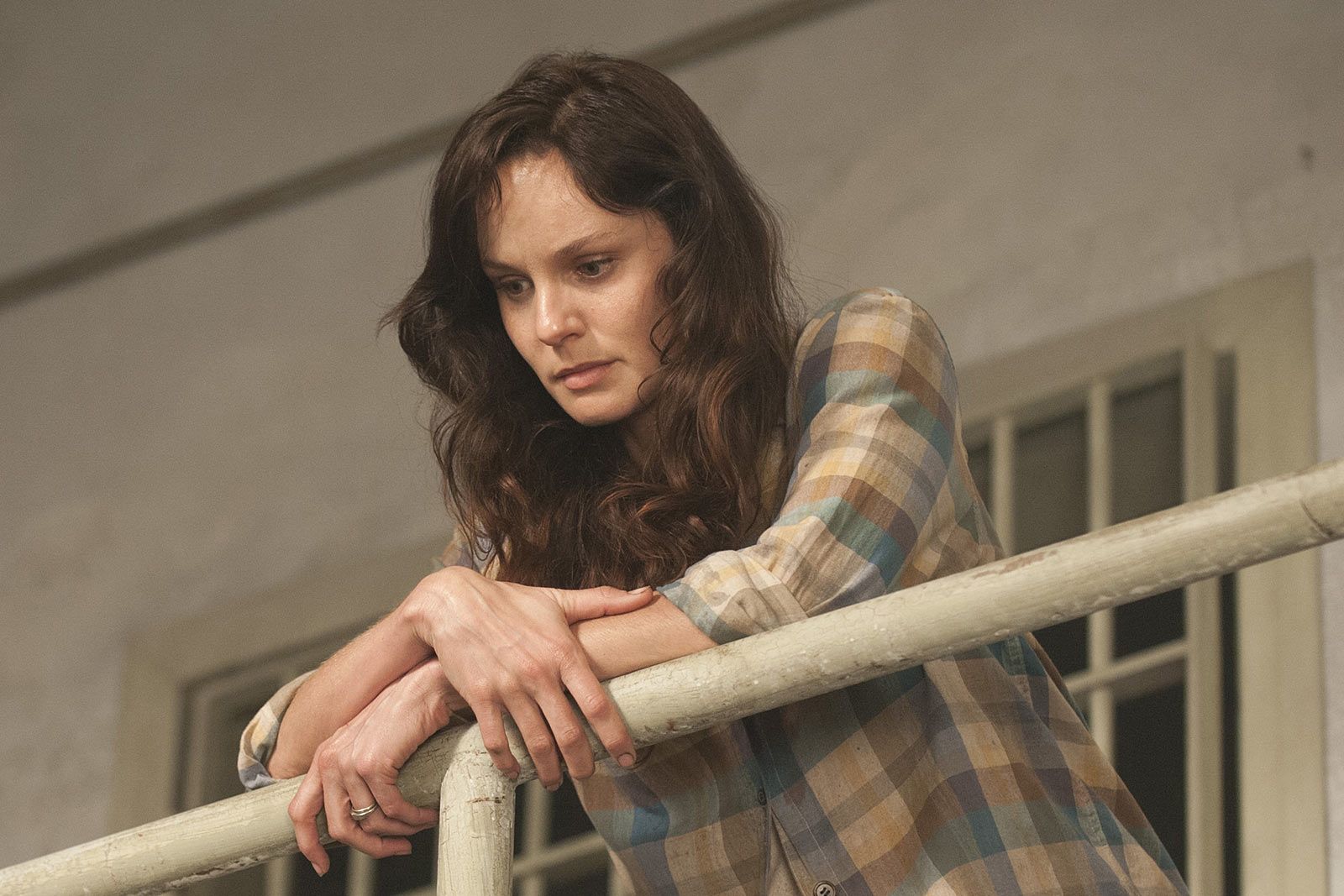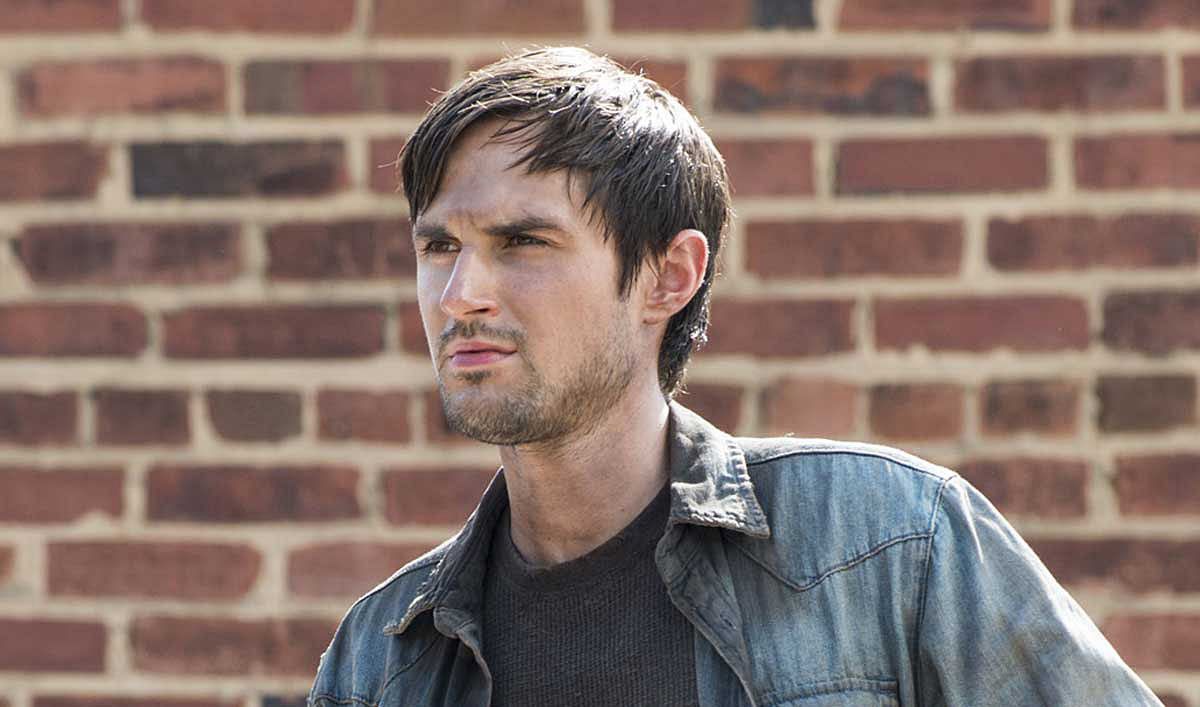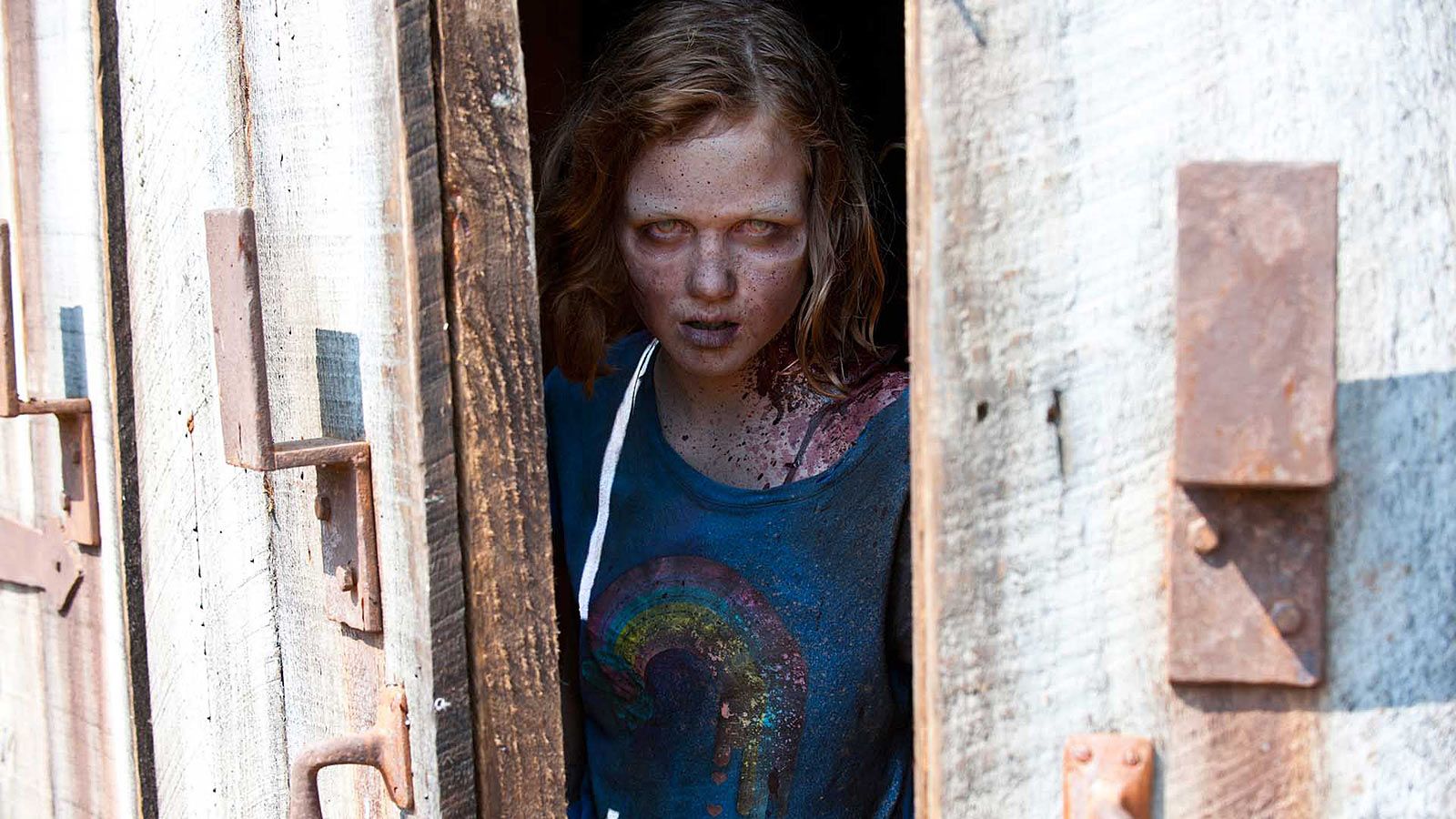SPOILER WARNING: Major spoilers from AMC's "The Walking Dead" (and the Image Comics series it's adapted from) follow.
"Important." "Important" doesn't mean "best," nor does it mean "most shocking." It means the deaths that have made the biggest impact on AMC's "The Walking Dead." And that can mean many things. Sometimes a death is important because of how it changes the story or affects a character. Sometimes it's important because of how it alters the stakes. Sometimes it's important because of what it has to say thematically, and sometimes it's important because it changes things for the worse. No, "The Walking Dead" isn't perfect, and a lot of that stems from how the series has come to treat the deaths of certain people. It's valuable to examine these negative storytelling traits as well as the positive ones.
RELATED: Who Is "The Walking Dead's" Ezekiel - And Why Does He Have a Pet Tiger?
It's also a task that feels especially appropriate given the recent announcement of Season 7's premiere date. Like just about everyone else on the internet, we've been upfront about our less-than-positive feelings on how Season 6 -- so promising when it started -- ended, and it will be interesting to see how the show treats its deaths when it comes back in the fall. Will all the hoopla surrounding Negan's mystery victim be worth it? Will the show be able to move past it and continue delivering moments akin to the better entries on this list? Time will tell. One thing's for certain though: Love it or hate it, "The Walking Dead" has become a landmark show in the world of horror. Has there ever been a piece of zombie fiction with such a rabid following? People wouldn't be so pissed about the Negan business if they didn't care about the series in the first place.
So we're rooting for you, Scott Gimple, Greg Nicotero and the rest of the "Walking Dead" team. Grievances aside, we love this show and want it to return to its former glory. We want the character deaths to be important in the most positive sense of the world. Let's see if you can deliver. But for now, here's our list of the character deaths that had the biggest impact on the series through the first six seasons.
10 Hershel Greene
Throughout his tenure on "The Walking Dead," Hershel Greene believed no one was beyond redemption. And he should know -- before the apocalypse, he had a drinking problem that persisted until his daughter Maggie was born. Hershel holds on to this pragmatic optimism all the way until the very end, retaining his faith in humanity even after another period of darkness where he keeps his undead loved ones alive in a barn, clashes with Rick Grimes over leadership, and returns to the bottle for a brief time. But he still bounces back and, as a result, wishes to resolve the conflict with his group's rivals in Woodbury through diplomacy rather than violence. Needless to say, it doesn't go well, as evidenced by The Governor decapitating him with Michonne's katana, right in front of Hershel's entire family. One could view this two separate ways: 1) The zombified world is too brutal for an empathetic worldview like Hershel's or 2) There's still room for compassion even in the worst moments, something that Rick and others often struggle to remember down the line.
9 Brian Blake (The Governor)
Brian Blake (better known as The Governor) was never the most complex villain on "The Walking Dead." He didn't have the moral ambiguity of Shane, the concrete leadership philosophy of Negan, or the late-in-the-game vulnerability of The Hunters. He was more or less an unhinged sociopath (albeit the circumstantial kind), with all trace of his former self erased after his daughter, Penny, died. By the time he was introduced in Season 2, there just wasn't much left to his personality. But he still holds the distinction of being the show's longest-running villain so far, which means his death came loaded with all sorts of narrative consequences, even if it was devoid of any larger thematic implications. Once he died under Michonne's blade and Lilly's bullet, the series was finally free to move on from one of its more meandering stretches to the strongest plot point so far: Terminus.
8 Tyreese Williams
Tyreese's death still seems unfair. It was arguably the juiciest role of Chad Coleman's career, and it felt like he still had a lot of story to tell, even though his character died only shortly after he did in the comics. But he's on this list for the unconventional presentation of his death. "The Walking Dead" isn't exactly known for its quieter moments, often preferring to cull its cast through gory evisceration rather than meditative scene work. And yet Tyreese getting bitten by Noah's reanimated brother played like a one-man memory play -- an hour where he's trapped in a child's bedroom and forced to face all of his ghosts (both benevolent and malicious) before peacefully moving on to the other side. In a show that's sometimes too slavish to its own momentum, some of the best installments are these kinds of bottle episodes (see "Here's Not Here"), and "What Happened and What's Going On" remains a pitch-perfect example of that.
7 Andrea Harrison
A TV adaptation of a comic book by no means has to rigorously follow its source material to be good. Just look at AMC's other comic-rooted show, "Preacher." But if you're going to change up a character's entire arc, there better be a damn good reason why, and unfortunately, the writers of "The Walking Dead" never figured out quite what to do with Andrea. It's a shame, too, seeing as she's not only still alive in the comics -- she's one of the most badass characters to ever grace the pages of an Image book. At first, her show counterpart seemed to follow the trajectory originally laid out for her by Robert Kirkman. Then Season 3 saw her get romantically involved with The Governor. While not the worst idea in the world (it's always interesting to see the show's heroes sympathize with a viewpoint other than Rick's), it ended up being a shortcut to offing her in a way that felt more than a little nasty. After Andrea betrays Brian Blake, he ties her to a chair next to Milton, who's mortally wounded and soon to be zombified. Although he does his best while still alive to help Andrea escape, it's too late by the time Rick and his team find her. She's already been bitten and wishes to take her own life. It was recently revealed that Andrea's death wasn't so much spiteful as it was indifferent on the part of the writers, but either way, it started a disappointing trend on "The Walking Dead" of getting rid of characters who were becoming too challenging to write for.
6 Shane Walsh
As "The Walking Dead" has progressed, it's been easier to view Shane in a much more sympathetic light. He certainly wasn't without his flaws (he did try to kill Rick and could never get over his feelings for Lori), but he also had a tougher outlook that seemed well suited to a world overrun by walkers. Emotional instability aside, was he really that wrong to leave Otis for dead? We don't think so. He did it to save Carl, and Rick himself would go on to commit many similarly controversial acts as his own leadership style hardened. One could also argue that his behavior became just as erratic as Shane's in terms of temper, recklessness, and entitlement as the scenarios have gotten more dire on "The Walking Dead." It seems that, as the world has turned tougher, Rick has become more and more like his former best friend and eventual enemy. Maybe he always had a lot more in common with Shane than he'd like to think, or maybe he subconsciously took on some of his personality traits after killing him. Whatever the case, there's no denying the impact of Shane's death. Plus, from a pure plot standpoint, his reanimated corpse provided the important revelation that anyone -- not just someone who's been bit -- can and will come back as a walker.
5 Negan's mystery victim
Even though we still don't know who Negan bludgeoned to death in the Season 6 finale, the sequence proved to be a watershed moment for any fan that's been on the fence about "The Walking Dead." Whether or not they'll follow through on this remains to be seen, but many viewers and critics have vowed not to return after such a blatant case of trolling. (At Comic-Con, we did find out one character who definitely doesn't dance with Lucille.) Did we see the murder from the victim's point of view because the writers were going for genuine suspense, or simply because they hadn't figured out who the character in question was yet? Was it supposed to be Glenn, as in the comics? And if so, are Scott Gimple and co. now reconsidering killing a guy who they tried to fool us into thinking was dead already? Or maybe it's Daryl, and AMC is waiting to see how the ratings pan out for "Ride With Norman Reedus." Whatever. At this point, it seems silly even debating it. Bottom line: the mystery death represents how misplaced "The Walking Dead"'s priorities have gotten. When the show's good, it's really good, but when it's not, we get pointless cop-outs like this. We get entire ad campaigns based around the identity of a dead person. It's the survival-horror inverse to "Who shot J.R.?", and that makes the mystery death symbolic of the love/hate relationship between the show and some of its diehard fans. It's therefore an important moment, albeit for all the wrong reasons.
4 Lizzie and Mika Samuels
At nearly six years strong, "The Walking Dead" has explored just about every moral question possible in a zombie-induced apocalypse. But as many of the newer right-or-wrong dilemmas have felt repetitive, the death of Lizzie and Mika Samuels still manages to shock. Female counterparts to Billy and Ben in the comics, the siblings presented a disturbing examination of how a young sociopath would act in a planet populated by the undead. Where Mika was able to kill walkers while her natural empathy prevents her from taking human life, Lizzie was the opposite -- insistent that she was able to forge connections with zombies rather than the living. To convince others of her beliefs, she murdered Mika so that she would come back and prove to be just as worthy a companion as before. Even worse, she turned her knife on baby Judith before Carol -- her de facto guardian in the series -- found her. Carol committed to the hard decision -- a decision viewers weren't sure the show would actually have her make -- to promptly shoot Lizzie while her back was turned. Even though her choice was completely understandable, the moral complexity of the back-to-back deaths has the power to rattle audiences even today, thus making it a powerhouse moment on "The Walking Dead."
3 Lori Grimes
Anyone who's read "The Walking Dead" knows that Lori's death is even more shocking in the comics, if only because she gets killed at the same time as her and Rick's (or Shane's) daughter, Judith. It's probably for the best that the show didn't go there -- it's hard to say how most viewers would have reacted to a baby exploding onscreen. But the way Lori died on TV still had an equally prominent effect on Rick. When walkers swarmed the prison in Season 3, Lori began bleeding during labor contractions. Sensing that she wouldn't make it through childbirth, she had Maggie perform an improvised cesarean section with no anesthesia. Although Judith was successfully brought into the world, Lori passed away, with Carl volunteering to shoot her in the head before she reanimated. But it ended up being Rick who had a harder time coping with the loss, becoming more and more unstable until his skills as a leader came into question. Like The Governor, Lori's death had huge narrative consequences for "The Walking Dead" -- consequences that had greater emotional resonance since she was a much more sympathetic character.
2 Gareth and The Hunters
No villain ever sees themselves as a villain, and Gareth was the ultimate representation of that on "The Walking Dead." Is it right that he and his fellow Hunters resorted to cannibalism to survive? Of course not. But thanks to the emotional intensity of Andrew J. West's performance in his final pleading moments with Rick, you at least understood why he was driven to such extreme barbarism. As such, his death actually became disturbing when it could have been cathartic (the fact that Rick hacks him to death with a machete when he could just as easily shoot him also played a part). It might be exaggeration to say that Rick and co. became true villains when they executed The Hunters, but there's no denying the savagery of their methods -- a deliberate parallel to when The Hunters robotically slit their prey's throats assembly line-style at the beginning of season five. The massacre served as a grim reminder of just how much the main characters had changed since we first met them.
1 Sophia Peletier
Also known as The Moment When "The Walking Dead" Finally Got Its Shit Together (for a time, anyway). If we're going off what traditional Hollywood storytelling has taught us, we had every reason to believe that Rick's party would find Sophia alive and well in Season 2. She had already been missing nearly half a season, the considerable amount of time hinting that there would be a positive payoff for her fate. Also, her character remains alive in the comics to this very day while her mother, Carol, bit it long ago. In the early days of the series, it still seemed that the show might follow the source material's story relatively close.
Not so. After everyone discovered that Hershel Greene had been keeping walkers alive in his barn, Sophia emerged from the shadows fully zombified. It turns out the search for her character was fruitless. Every last actor plays the reveal with palpable shock and heartbreak, with Rick being the only one able to muster up the strength to step forward and shoot her. It was a monumental moment, not only for the narrative diversion and Rick's arc as a leader, but for the general stakes on "The Walking Dead." Like the comics, it suddenly proved that no one was safe, and that this is a world where some very hard decisions have to be made. And because it was the first truly surprising character death, no demise since has delivered quite as much of a gut-punch. The show would go on to sometimes falter when killing off a principal cast member by over-hyping the event (see the ad campaign for Season 7), but back in 2011, Sophia's death proved that "The Walking Dead" works best when it doesn't broadcast its surprises. It works best when death comes suddenly, naturally, and brutally with little fanfare beforehand. Isn't that how it usually happens in real life?

